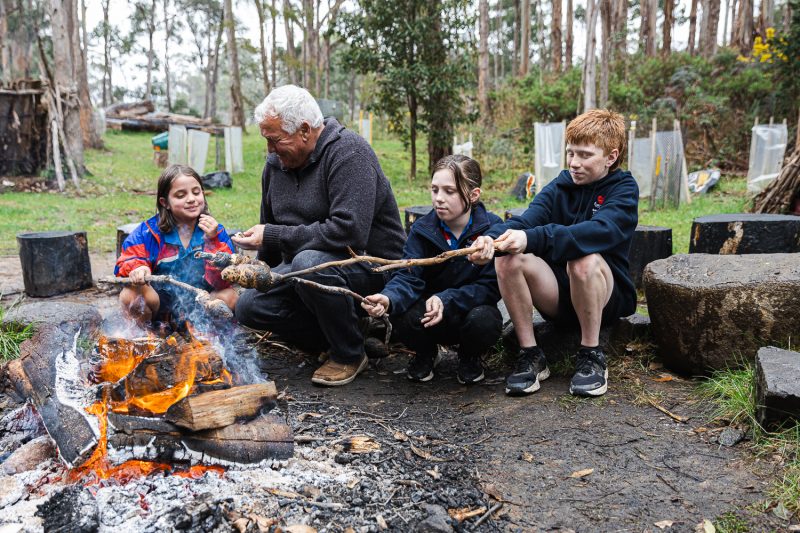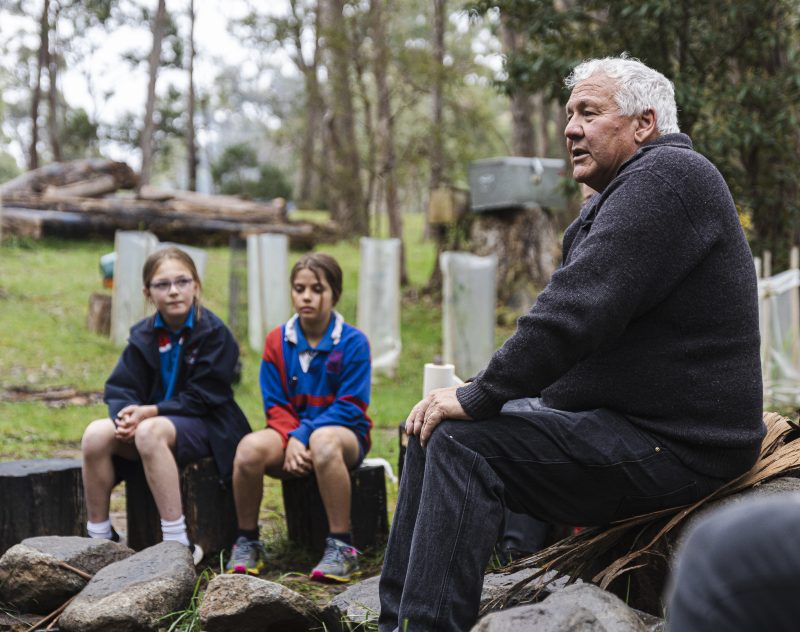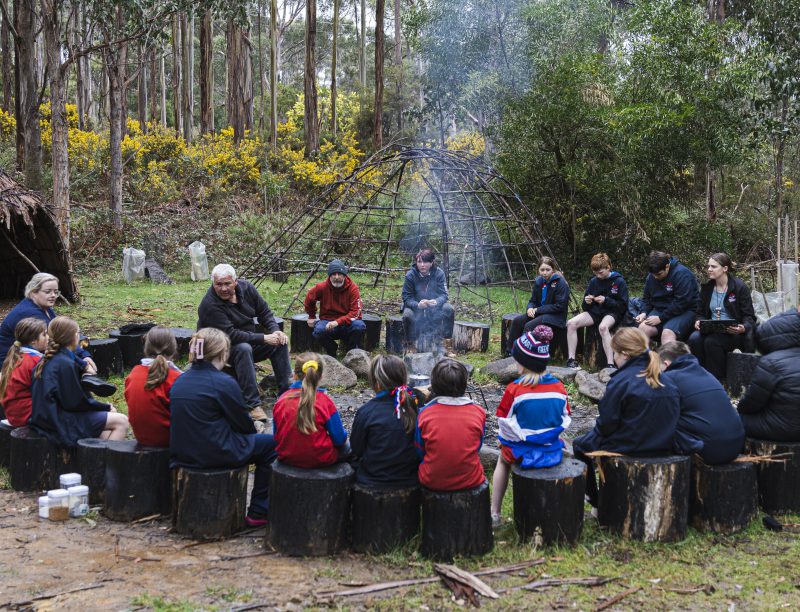Bridging a deeper connection with Country
“See the wattle blossom over there?” Uncle Rodney Dillon points to a medium size tree with a fluffy yellow flower dotted all over it. The kids who are sitting around the fire with Uncle Rodney all look over.
“When the wattle blossom is on it is the start of the new year for Aboriginal people,” he continues “It’s this time of year when the animals are having babies and we’re not allowed to take the animals when they’re having babies, so we eat other bush tucker like oysters, whelks, mussels and werriners.
“Nature has a way of telling us what is going on.”
Uncle Rodney is sharing stories about Tasmanian Aboriginal people and their culture with students at Sacred Heart Catholic School Geeveston as part of the school’s Sacred Country project. They are spellbound as Uncle Rodney takes them back 60,000 years.
“We come from the most ancient people in the world. We go back 2,500 generations. We get energy from the ancestors from under the ground.
“Aboriginal people never had fences like we have today to define boundaries. They had other ways of letting people from different groups know about land ownership. When other groups wanted to use another’s land for food there was a rule of respect. Under the Aboriginal system you can’t be too greedy because everyone has to have their share. Knowing how to look after each other is really important in our culture.
“Women had a big role to play in Tasmanian Aboriginal culture. They made all the decisions. They were bosses of the family and the reason why our culture is still so strong today is because of our women.”
The Sacred Country project is one of the Huon Valley Food Hub’s activation projects.
Deputy Principal Stacey Cooper said through this project, the Sacred Heart community aims to have Aboriginal and/or Torres Strait Islander children educating, storytelling and creating experiences about connecting to Country and self.
“Students will be supported and upskilled in these endeavours by the school, and Aboriginal and/or Torres Strait Islander community members, educational providers and elders,” Stacey said.
Aboriginal key teacher and Melukerdee woman Alarna Page said the sessions are all about inspiring the students with stories and knowledge about Tasmanian Aboriginal culture.
“Our staff and students are passionate about learning, sharing and celebrating our [Aboriginal and/or Torres Strait Islander] culture. Today is about stimulating conversations amongst our Aboriginal and/or Torres Strait Islander students, to identify what they would like to focus on so we can take action together,” Alarna said.
“We are developing our connection to Country through exploring our school’s bushland. For example, cool burning with Jason Smith will help regenerate our land.”
The Food Hub project is funded by the Tasmanian Government through the Healthy Tasmania Fund. Four specifically designed trial projects will be delivered over coming months in an attempt to stimulate change, influence policy, and raise awareness through active participation and education with the community.
You can follow the Food Hub journey on Facebook and Instagram or checking out the website Huon Valley Food Hub.





